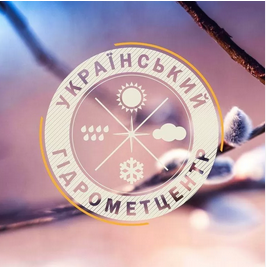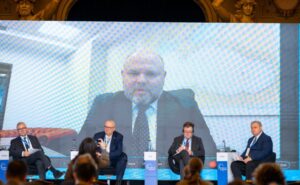
On December 18, 2025, the Hyatt Regency Kyiv will host the Ukrainian Building Awards 2025 ceremony, the largest industry event that determines the key leaders of the construction and development market in Ukraine.
The event is organized by DMNTR Media Group, a team with 25 years of experience in creating business forums and national awards that bring together developers, architects, manufacturers, investors, and government officials.
More than 1,500 guests and leading Ukrainian media outlets are expected to attend.
The main idea for 2025
“Leaders of reconstruction. Influence. Quality. Reputation.”
The awards focus on identifying companies and individuals who are setting new market standards: from architecture and development to investment, infrastructure, and design.
The Ukrainian Building Awards are an indicator of trust, reputation, and real contribution to the country’s development.
Key highlights of the program
Investment focus
New opportunities for project financing, economic drivers, and approaches to attracting international capital.
The evolution of the developer
How the role of the developer will change in 2025–2026 — from risk management to creating value for society.
Resource strategy and competitiveness
Companies share practices that allow them to scale even in times of uncertainty.
Architecture and urbanism of the future
A look at reconstruction: authenticity, context, technology, and generational synergy.
Reputation as key capital
Why 2025 has permanently changed the rules of the game in communications, PR, and market trust.
Be part of the Ukrainian Building Awards — a professional platform where the standards for 2026 are set.
This is a place where companies make a name for themselves, establish partnerships that influence the market, and gain recognition that matters to investors, customers, and the media community.
The award is not just a ceremony, but a space of status and content, where every speech and every nomination shapes the future of the industry.
Event structure
Date: December 18, 2025
Venue: Hyatt Regency Kyiv, 5 Alla Tarasova Street
Format: offline event, conference + awards ceremony
Time: 11:00 a.m. – 10:00 p.m.
10:00 a.m.–12:00 p.m. — Guest registration and morning networking
12:00–18:00 — Conference, including:
6:00–10:00 p.m. — Ukrainian Building Awards 2025 ceremony
Awards in three categories:
Final part — festive dinner and performance by the band SKY.
Why you should attend
How to join
Registration is available on the official website: www.ubc-ua.info/uba
Organizer contacts:
DMNTR Media Group
Phone: +38 (044) 461 91 28
Email: info@dom-i.kiev.ua
Ukrainian Building Awards 2025 — a space where the reputation of the future is formed and the companies that are building a new Ukraine are determined.
Join us to be among those who shape the rules of the game in the industry.
DMNTR Media Group is a team with 25 years of experience in creating professional events for the architectural, construction, and investment audiences. Key projects include:
— Ukrainian Building Congress
— Ukraine Investment Congress
— All-Ukrainian competition “Interior of the Year”
— Ukraine Urban Awards
— Architectural and Development Award “Creator of the Year”
We also publish the leading architecture and design magazine DMNTR and publish daily insights, reports, news, and analytics on our platforms.
Follow us:
Instagram: www.instagram.com/ukrainian_building_congress
Facebook: www.facebook.com/share/16RUuTVCQ1
Interfax-Ukraine is the official media partner of the event.

On December 4, Kyiv hosted the Petroleum&LPG Ukraine 2025 forum, a long-standing meeting place for operators in the Ukrainian petroleum products market. The conference brought together 280 delegates from 120 companies in the fuel sector, representatives of government agencies, and companies. The forum was organized by the A-95 Consulting Group.
One of the main topics of the conference was international cooperation. Representatives of the Ministry of Energy of Ukraine, Naftogaz of Ukraine, Ukrnafta, and the Polish energy company ORLEN S.A. took part in the discussion. As noted by Robert Kwiatkowski, Director of Strategy and Strategic Transformation at ORLEN S.A., Ukraine is a strategic direction for the company’s current activities and development.
“We understand that if we do not help Ukraine, it could be our biggest mistake,” said the Polish top manager.
ORLEN is currently the largest supplier of light petroleum products to Ukraine: according to the A-95 Consulting Group, in 2023-2025, gasoline supplies increased threefold, and diesel fuel supplies increased one and a half times. The company is also a major supplier of road bitumen, lubricants, and petrochemical products.
Serhiy Koretsky, Chairman of the Board of Naftogaz of Ukraine, spoke very highly of the company’s cooperation with the Polish concern.
“ORLEN has become so deeply integrated into the Ukrainian market that sooner or later, the company will likely acquire its own assets in Ukraine,” said the head of Naftogaz, who is actively developing cooperation with the Polish concern in LNG imports and other areas.
According to Deputy Minister of Energy Mykola Kolisnyk, integration into the EU is a guarantee of long-term development of the Ukrainian fuel market. He noted that the transition of the Ukrainian fuel market to EU standards requires the introduction of high environmental standards and modern approaches to the processing of petroleum product waste.
A separate session was devoted to tax discipline, attended by a large delegation of leading officials from the State Tax Service, headed by Acting Chair Lesya Karnaukh. She gave preference to public communication with forum participants, who had a unique opportunity to ask any questions. The greatest interest was in the mechanism for companies to be included in the list of “risky” ones, as well as the tax authorities’ approaches to tax payment standards.
“Without interaction with the market, which strives for fair conditions, we will not be able to work effectively. We are not a punitive body; our goal is to fairly determine tax liabilities,” Lesya Karnaukh said following the discussion.
In turn, A-95 estimated that in 2023-2025, the payment of operating taxes by the largest gas station chains would increase more than twofold, by almost UAH 10 billion.
Other topics of in-depth discussion at Petroleum&LPG Ukraine 2025 included post-war development of maritime and railway infrastructure, creation of petroleum product reserves, development of the bioethanol industry and use of alcohol-containing gasoline, electromobility, and expansion of non-fuel activities at gas stations.
“The fuel market remains the most resilient energy sector thanks to the comprehensive restructuring of the geography and logistics of supplies in 2022. Despite constant shelling and losses, companies in this market are a reliable support for consumers and the state, ensuring stable fuel supplies and paying taxes that are growing year after year,” said the event moderator, Director of the A-95 Consulting Group, Serhiy Kuyun.
The conference partners were traditionally the largest market operators: ORLEN S.A., JSC Ukrnafta, OKKO, UNIMOT S.A. (Poland), UPG, Kemexon (Switzerland), JSC Energo Trade, Western Fuel and Energy Company, AGTG (Switzerland).
The Petroleum&LPG Ukraine 2025 forum has been held annually by the A-95 Consulting Group since 2023. From 2009 to 2019, the company held the Petroleum Ukraine conference, and from 2010 to 2020, the LPG Ukraine conference.
In 2022, the annual Petroleum Ukraine forum was also launched in Warsaw. Warsaw, which is one of the largest events in Eastern Europe dedicated to the motor fuel market.
Interfax-Ukraine is an information partner.

On Monday, December 15, light wet snow is expected across much of Ukraine, with rain during the day and icy roads; no precipitation is expected in the west and southwest of the country, according to the Ukrainian Hydrometeorological Center. In the western, northern, and central regions, there will be fog in some places at night and in the morning. The wind will be from the west and northwest at 5-10 m/s.
Temperatures at night will range from 2°C to -3°C, and during the day from 0°C to 5°C; in the east and northeast, temperatures at night will range from -3°C to -8°C, and during the day around 0°C.
In Kyiv on December 15, light wet snow, rain during the day; icy roads. Wind north-west, 5-10 m/s.
Temperature at night 0-2° below zero, during the day 2-4° above zero.
According to data from the Boris Sreznevsky Central Geophysical Observatory, the highest daytime temperature in Kyiv on December 15 was 9.4°C in 1950, and the lowest nighttime temperature was -20.1°C in 1921.
On December 16, there will be no precipitation in Ukraine, only light wet snow on the left bank at night, with icy roads.
In Ukraine, there will be fog in some places at night and in the morning. The wind will be variable, 3-8 m/s. The temperature at night will be from 2°C to -3°C, and during the day 0-5°C; in the eastern regions, the temperature at night will be 0-5°C, and during the day from -2°C to 3°C.
In Kyiv, December 16 will also be dry. Winds will be variable, 3-8 m/s. Nighttime temperatures will range from 0-2°C, daytime temperatures from 4-6°C.

A sharp rise in global RAM (DRAM) prices and the possible end of Apple’s preferential contracts with key suppliers Samsung and SK Hynix in 2026 could lead to higher prices for iPhones, Macs, and other Apple devices. However, Apple itself has not yet announced any price increases, and expert estimates remain forecasts.
According to industry sources, Apple’s long-term DRAM supply agreements are nearing their end, and as early as January 2026, the company may be forced to pay Samsung and SK Hynix significantly higher prices for memory. This is reported, in particular, by Wccftech, noting that the bargaining position of memory manufacturers has strengthened amid a global shortage and a boom in demand from AI data centers.
The DRAM market is already experiencing a massive price rally. According to TrendForce, the cost of advanced memory for 2025 has increased by approximately 50%, and in the fourth quarter, additional growth of about 30% is expected, with a possible further increase of 20% in early 2026. Taken together, this could lead to a doubling of prices for high-performance memory in a relatively short period of time.
Separately, Reuters reported that Samsung raised its contract prices for 32GB DDR5 modules to $239 at the end of 2025, up from $149 in September — an increase of nearly 60% amid worsening shortages and a shift in supply toward the server and AI segments.
Analysts note that Apple is traditionally protected from short-term price spikes thanks to large long-term contracts and purchase volumes. According to Macworld, it is these agreements that have so far allowed the company to keep its internal memory costs under control, despite rising prices on the open market. However, as these contracts expire and suppliers move to shorter-term and more expensive deals, pressure on device costs will increase.
Against this backdrop, some research and industry resources predict that in 2026, smartphone and laptop manufacturers, including Apple, will be faced with a choice: either raise retail prices, reduce the amount of RAM in basic configurations, or accept lower margins. A number of analytical reviews are already warning of a possible increase in the cost of smartphones and PCs in 2026 due to a shortage of memory and an increase in its cost.
At the same time, there have been no official statements from Apple about a planned increase in product prices in connection with the situation on the DRAM market. The industry media experts surveyed emphasize that the final decision will depend on the company’s strategy: part of the cost increase may be offset by more expensive memory upgrades, part by a selective revision of prices for new models, and part by internal reserves and optimization.

In January-November of this year, Ukraine reduced exports of titanium-containing ores and concentrates in physical terms by 95.7% compared to the same period last year, to 277 tons.
According to statistics released by the State Customs Service (SCS) on Friday, in monetary terms, exports of titanium-containing ores and concentrates fell by 95.2% to $496,000. The main exports were to Uzbekistan (35.61% of shipments in monetary terms), Turkey (35.01%), and Egypt (29.38%).
In addition, Ukraine imported 78 tons of titanium-containing ore worth $117,000 from China (98.29%, deliveries took place in January) and Kazakhstan (1.71%, deliveries took place in May) in the first 11 months of 2025.
During this period, Ukraine exported 2,466 tons of niobium, tantalum, vanadium, and zirconium ores and concentrates worth $3.954 million to Spain (48.90%), Germany (24.53%), and Italy (17.19%). At the same time, the country imported 441 tons of such ores worth $1.125 million from Spain (72.98%), the Czech Republic (12.89%), and China (11.82%).
As reported, in 2024, Ukraine reduced its exports of titanium-containing ores in physical terms by 37.5% compared to the previous year, to 7,284 thousand tons. In monetary terms, exports of titanium-containing ores and concentrates decreased by 40% to $11.654 million. The main exports were to Turkey (62.82% of shipments in monetary terms), Egypt (7.38%), and Poland (6.93%).
Last year, Ukraine imported 314 tons of titanium-containing ore worth $492 thousand from China (87.78%), Vietnam (6.11%), and Senegal (also 6.11%).
At the same time, experts pointed out the inconsistency of statistics on exports of titanium-containing ores. However, in response to a request from Interfax-Ukraine, the State Customs Service (SFS) of Ukraine stated that complete data on the export of titanium raw materials is not provided due to restrictions on the volume of export and import operations with military and dual-use goods, which are reflected in aggregate form under “Other goods.” They explained that, in particular, deliveries of titanium-containing ores from companies differ from the SCS data.
“We would like to inform you that these deliveries are included in the statistical exports from Ukraine, but are not reflected in the foreign trade statistics published by the State Customs Service (…) under commodity item UKTZED 2614 ”Titanium ores and concentrates” in view of the following (…) In accordance with the regulations (…), when protecting data for confidentiality purposes, any information considered confidential is reported in full at the next, higher level of product data aggregation,” the State Customs Service explained in its response to the agency.
It was clarified that information on customs clearance and movement across the customs border of Ukraine of goods subject to export control is included in the list of information containing official information in the SSU, in accordance with the relevant order.
In Ukraine, titanium-containing ores are currently mined mainly by PJSC “United Mining and Chemical Company” (UMCC), which manages the Vilnohirsk Mining and Metallurgical Plant (VGMK, Dnipropetrovsk region) and the Irshansk Mining and Processing Plant (IGZK, Zhytomyr region), as well as LLC “Mezhirichensky GZK” and LLC “Valky-Ilmenite” (both LLCs are located in Irshansk, Zhytomyr region). In addition, the production and commercial firm Velta (Dnipro) built a mining and processing plant at the Birzulivskyi deposit with a capacity of 240,000 tons of ilmenite concentrate per year.

Participants in the panel discussion “Connecting Economies: Cross-border Infrastructure and the Power of Partnership” at the Ukraine Recovery Forum in Bucharest emphasized that the development of border infrastructure and joint projects is a key condition for unlocking the economic potential of Ukrainian-Romanian cooperation, especially in the border regions of Chernivtsi and Zakarpattia Oblasts.
The discussion was moderated by Bogdan Bernyage, senior associate expert at the New Strategy Center (Romania). The panel was attended by Gheorghe Șoldan, chairman of the Suceava County Council (Romania), Mykhailo Pavliuk, deputy chairman of the Chernivtsi Regional Council, and Andrii Sheketa, first deputy chairman of the Zakarpattia Regional Council.
According to the participants, the economic partnership between Chernivtsi region and Romania is of strategic importance: Romania accounts for over 20% of the region’s foreign trade turnover. There is significant potential for deepening cooperation in the woodworking industry, where Chernivtsi’s raw material base can be combined with the processing capacities of the Romanian side. Opportunities for the development of joint projects in the fields of IT, tourism, agriculture, and transport were also noted. “Our regions are already closely linked by trade, the next step is to move from simple exports of raw materials to joint production chains,” Pavliuk said.
With regard to Zakarpattia, the participants emphasized that the reconstruction of the region is closely linked to its long-term development and the deepening of ties with Romania. Despite the fact that the region has the longest section of the common border with this country, the border infrastructure remains underdeveloped, and a number of checkpoints operate below their potential capacity. According to Sheketa, targeted infrastructure investments—in roads, rail approaches, and the modernization of border crossing points—are a necessary condition for improving connections between Transcarpathia and Romania and for making fuller use of the opportunities for cross-border cooperation.
Following the discussion, the participants concluded that the development of joint projects and the modernization of border infrastructure could strengthen the economic integration of border regions and create additional opportunities for business and employment on both sides of the border.